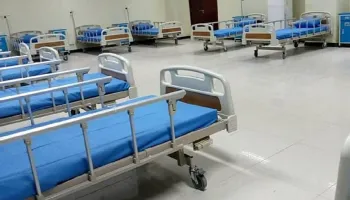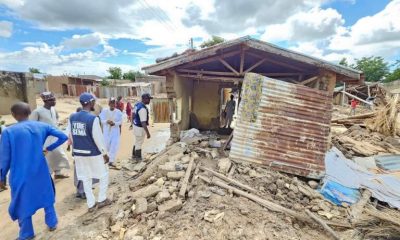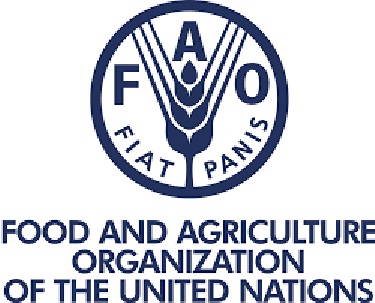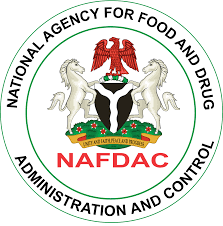Health
Unravelling Pain, Stigmatisation: Lots of Infertile women in Nigeria

Are you a woman struggling and praying to have a baby? Are you sharing in the pains of an infertile relative? You are not alone.According to the World Health Organisation (WHO), infertility is a disease of the male or female reproductive system defined by the failure to achieve a pregnancy after 12 months or more of regular unprotected sexual intercourse.
It noted that infertility affects millions of people of reproductive age worldwide and has an impact on their families and communities. Estimates suggest that between 48 million couples and 186 million individuals live with infertility globally.Infertility may be caused by a number of different factors, in either the male or female reproductive systems. However, it is sometimes not possible to explain the causes of infertility.With these information, the way and manner Africans stigmatise infertile women makes it look as if infertility only occurs in women in the continent.Although both women and men can experience infertility, a woman in a relationship with a man without a resultant pregnancy, is often perceived to be infertile, regardless of whether she is infertile or not.Infertility has significant negative social impacts on the lives of infertile couples and particularly women, who frequently experience violence, divorce, social stigma, emotional stress, depression, anxiety and low self-esteem.Being able to get pregnant is a big part of the marriage institution, especially in the African cultural context; hence infertility is associated with a lot of negative psychosocial and other consequences such as infidelity.In an interview with the Newsmen,most respondents concurred that infertility stigmatisation has led women into doing what they would ordinarily not have done just to have a child or children of their own.Various studies suggest that there is greater stigma for infertile women than men, and in developing countries, the infertile women experience the negative consequences of childlessness to a greater degree.The shame associated with infertility is so bad that none of our respondents wanted their names to be mentioned.Mrs Nkiru Ogbonna (not real name) told NAN that her mother-in-law and husband called her a witch and declared that she had no womb.Being the only child of her mother, she was deemed to have come from a home of infertile people.“They threw me out of the house after five years of marriage to their son.“I thank God they did that because after two years God gave me another husband and I now have four children with him while my former husband is still without a child, even though he remarried.“It was latter I discovered that the problem of our childlessness was my former husband’s fault but he and his family put the whole blame on me’’ because it was in their interest to do so.Hajia Amina Musa (not real name) said, “it is God that gives children but if He decides not to give me, who am I to question him?“My husband has other wives with children and I take them as my own, although sometimes I wished I had one of my own”.Some others said that they would be prepared to try other means of getting their own babies instead of being subjected to ridicule.From their responses though, it could be seen that ignorance probably played a major role in arriving at that mind-set.When asked if they would go for “In Vitro Fertilisation or adoption”, they reluctantly chose IVF, saying that adoption stigmatisation is still the same as that of infertility.Majority said they will prefer to do whatever they did secretly, while some said they would prefer to have another man impregnate them secretly just to cover their husbands’ shame of being infertile.They said adoption would simply tell the world that they are infertile, and that therefore they would have preferred IVF to adoption, if it is affordable and reliable.Little wonder, a recent publication by the Premium Times showed that six of 10 children in Nigeria brought for DNA testing were not fathered by their supposed fathers.Infertile women have been known to cope with infertility by infidelity, leading to the prevalent situation of women having children that are fathered by men other than their husbands.“Our findings showed that most of these women sought medical help alone without their husbands.In most cases, when a couple does not have a child, the only option is for the man to marry another wife that will give him children.Bassey Emem, one of our male respondents who is a health worker, frowned at how infertility is usually wrongly regarded as a female problem in the continent.“It is all about giving every woman the respect and the help she deserves to live a fulfilling life, with or without a child.“It is sometimes difficult to get the male partner to bring a semen sample for analysis, more so if he has more than one wife or other children; though who is to say those children are actually his?”He said basic investigations for infertility should assess both male and female factors.“Some couples prefer to opt for traditional assistance so as to avoid detection of a male factor and the accompanying social blame.Some men and women even patronise quacks where their medical records will not be taken, while some treat the perceived source of their infertility without their spouses.“These unqualified health practitioners cannot prescribe appropriate dosages, don’t consider drug interactions, therefore successes of these herbs are difficult to ascertain and may sometimes cause more harm than good’’.Emem said a lot of women still resort to the use of traditional medicines, mainly herbs which may not be as effective as conventional treatment.“These women resort to different forms of treatment from faith healing to traditional medicine and even to patronising quacks.“Vast herbal resources remain unexplored and studies need to be conducted to see if they have any potential for infertility treatment, and to ensure proper regulation, safety and non-exploitation of desperate women’’.However, cultural and religious beliefs, and societal pressure to conceive may influence a woman’s decision to seek traditional treatment.Most of the women shared bitter experiences on what they have been through to satisfy the people around them and end their suffering.Dr Toochi Nwoye, Consultant Obstetrician and Gynaecologist, Federal Medical Centre (FMC), says fertility care encompasses the prevention, diagnosis and treatment of infertility.He said that infertility amongst couples is a shared responsibility; therefore, both the man and the woman involved should seek fertility care together, and early, too.“To conceive a child, a man’s sperm must combine with a woman’s egg.“The testicles make and store sperm, which are ejaculated by the penis to deliver sperm to the female reproductive tract during sexual intercourse’’.Nwoye noted that many different medical conditions and other factors can contribute to fertility problems, and an individual’s case may have a single cause, several causes, or in some cases no identifiable cause.“According to statistics, one-third of infertility cases are caused by male reproductive issues, one-third by female reproductive issues, and one-third by both male and female reproductive issues or by unknown factors.“In male reproductive system, infertility is most commonly caused by problems in the ejection of semen, absence or low levels of sperm, abnormal shape or motility of the sperm, and bad lifestyle habit.“In the female reproductive system on the other hand, infertility may be caused by a range of abnormalities of the ovaries, uterus, fallopian tubes, and the endocrine system, among other possible factors.“Infertility can be primary or secondary. Primary infertility is when a pregnancy has never been achieved by a person, and secondary infertility is when at least one prior pregnancy has been achieved’’.Nwoye noted that many risk factors for both male and female infertility are the same fortunately, so there are many safe and effective therapies that significantly improve the chances of getting pregnant.He advised that if you are a woman in a heterosexual relationship with regular intercourse and menstrual cycles, you should see your doctor after 12 months of trying to conceive or six months if you are over the age of 35.Also, surrogacy – another way childless couples could use for having children of their own – has been labelled taboo in Nigeria due to cultural and religious factors.A survey, conducted by reporters showed that although there is no law prohibiting such practice, people consider the act as taboo.This is just as the two prominent religions of Islam and Christianity prohibit same.Although in a state like Adamawa in north-eastern Nigeria, the state government has only child fostering policy, and no adoption, no surrogacy.Dr Aisha Liman, a Gynaecologist and mother of two residing in Maiduguri, also said that a woman who adopts the option of surrogacy would not be seen as being ‘woman’ enough. “People see being able to get pregnant as a mark of womanhood, so surrogacy will affect womanhood negatively, especially where people place a lot of emphasis on a woman’s ability to get pregnant, gestate and carry the child,” she said.However, Dr Usman Sunusi, a Consultant Gynecologist, described surrogacy as a normal practice in the medical field as it enables childless couples to have their own children, noting, however, that ‘the practice is against cultural and religious tenets’.Therefore, there is the need to scale up campaign against infertility stigmatisation against women and change the mind-set of the public towards the childless couple.This awareness will encourage and enhance access to regulated, safe, effective and equitable fertility care solutions. (NAN)Health
Kaduna pensioners to benefit from health insurance scheme

The Kaduna State Contributory Health Management Authority (KADCHMA) and the state chapter of the Nigerian Union of Pensioners (NUP), have signed a Memorandum of Understanding (MoU) on health insurance for its pensioners.
Speaking at the signing of the MoU on Monday in Kaduna, the Director-General (DG) of KADCHMA, Abubakar Hassan, said the benefits of the scheme for the pensioners were immense.
He explained that with the health insurance, pensioners would have access to health care services from any public or private health facility across the state without having to spend from their pockets.
With this, Hassan said, pensioners could receive the care they needed without worrying about the financial burden that often comes with accessing healthcare
services.
He disclosed that the annual premium for the health insurance scheme was N10,600, thereby making it affordable for the pensioners.
“This will facilitate access to quality healthcare to our pensioners, in line with the promises of governor Uba Sani’s administration to provide access to quality care through a state contributory health insurance scheme.
“As the State Health Insurance Manager, our objectives are clear. We aim to enroll more residents into the scheme to make healthcare more affordable and secure a
sustainable funding basis for our health facilities.
“We also seek to extend health insurance cover to poor and vulnerable citizens through the basic health care
provision fund, as well as enroll persons employed in the informal sector into the contributory health insurance scheme.
“Our ultimate goal is to build consensus
across the state for adopting contributory health insurance as the most affordable way to access healthcare in public facilities,”Hassan said.
He thanked the State’s Pension Bureau and the state chapter of NUP for embracing the scheme.
He urged other organisations, associations and bodies to follow suit and enroll their members in the social insurance scheme.
Also, the Chairman of NUP, Kaduna Chapter, Mr Aboman Ladan, said the MoU signing marked a significant milestone in their efforts towards ensuring that their members have access to quality healthcare without financial burdens.
“We believe that our pensioners deserve the best, and this scheme will go a long way in improving their overall well-being,”he said.
Ladan commended KADCHMA for their commitment to making healthcare affordable and accessible to all, while urging their members to take advantage of the scheme and enroll in the health insurance program.
Doing so, he said, the pensioners would live healthy and fulfilling lives, free from the worry of medical expenses.
Also, the National representative of the NUP, Ahmed Garzali, described pensioners as the most vulnerable, who were affected most by fuel subsidy removal.
He said the health insurance for their members in the state is a step toward addressing their out-of-pocket spending on health, while calling for sincerity of purpose and full implementation of the MoU.
Earlier, the state’s Commissioner for Health, Hajiya Umma Ahmed, said the collaboration between KADCHMA and the NUP marked a monumental step in the state government’s collective efforts towards ensuring the health and well-being of its pensioners.
Ahmed added that Sani’s leadership was instrumental in advancing healthcare initiatives that prioritise the well-being of every citizen, particularly senior citizens who have served the state with distinction.
She also said that Kaduna State Government recognised that the health of every citizen was a priority, which extended especially to its pensioners who have dedicated their lives to serving the state and nation.
By enrolling pensioners into the State Contributory Health Scheme, the commissioner said, they were taking proactive steps to safeguard the pensioners health and enhance their quality of life in retirement.
According to her, the contributory health scheme plays a critical role in reducing the financial burden of medical expenses, particularly for those in their later years who are often more vulnerable to health challenges.
“The Kaduna State Health Insurance Scheme is designed to provide comprehensive and affordable healthcare coverage, ensuring that no one, regardless of age or economic status, is left behind.
“The partnership between KADCHMA and the NUP is a strategic initiative that aligns with our vision of universal health coverage for all residents of Kaduna State.
“This MoU is more than just a document; it is a covenant that reaffirms our shared commitment to upholding the dignity and well-being of our pensioners.
”It symbolises our dedication to creating a health system that is inclusive, equitable, and responsive to the needs of every citizen,” she said.
She assured the pensioners that the government would implement the agreement effectively, while ensuring that the enrollment process is seamless, transparent, and accessible to all eligible pensioners.
“By doing so, we will not only fulfill our promise of providing quality healthcare but also demonstrate our commitment to the values of empathy, respect, and service,”Ahmed said.(NAN)
Health
18,000 Suspected Cases of Mpox Reported in DRC–WHO

The Director-General of WHO, Dr Tedros Ghebreyesus, says more than 18,000 suspected cases of Mpox have been reported in the Democratic Republic of Congo(DRC) this year, with 629 deaths.Ghebreyesus disclosed this on Friday during an online news conference.He said that the cases included more than 5000 cases and 31 deaths from the eastern provinces of North and South Kivu, where the new clade 1b strain had been spreading.
“The number of reported cases of clade 1b has been rising rapidly for several weeks. “Fortunately, relatively few deaths have been reported in recent weeks.’’According to him, in addition, 258 cases of clade 1b have been confirmed in Burundi, four in Rwanda, four in Uganda, one in Kenya and one each in Sweden and Thailand.“We also remain concerned about outbreaks of clade 1a in other parts of DRC.“This morning, I returned from DRC, where yesterday I had the honour to meet with His Excellency President Félix Tshisekedi to discuss the outbreaks.“I thanked the president for his leadership in the response to the outbreaks, demonstrated by the government’s commitment of 10 dollars to the response.I assured him of WHO’s full support, together with the Africa CDC and other partners.’’Ghebreyesus said he also had the opportunity to meet with the UN Country Team, where they discussed coordination of the Mpox response among UN agencies, under the government’s leadership.He that they discussed the critical importance of clear communication with people at risk of Mpox and strong engagement with communities and local partners.“I also met with global and local health partners to discuss scaling up routine immunisation for other diseases, including polio, measles and malaria, and mobilising frontline polio workers to support the Mpox response.“WHO is working to accelerate access to and delivery of vaccines.“The manufacturers of the two vaccines submitted their applications for emergency use listing last Friday and we are working to review those applications as fast as possible.“The safety and efficacy of vaccines are our highest priority. We will not take short cuts.’’According to him, the two main buyers of vaccines for low-income countries, Gavi and UNICEF, require WHO emergency use listing to buy vaccines for use in countries that have not issued their own national regulatory approval.“Last week, I gave Gavi and UNICEF the green light to proceed with procuring vaccines, in parallel with the EUL process.“However, WHO emergency use listing is not a barrier to vaccines being deployed in DRC.’’The director-general said that DRC’s medicines regulator approved both vaccines in June and the government had requested bilateral donations of vaccines from high-income countries with large stockpiles.He said that together with the Africa CDC, WHO had also helped to secure donations from the European Union and some of its Member States.“WHO is working with the Africa CDC, GAVI, UNICEF, CEPI and HERA to set up a coordination mechanism to allocate the donated vaccines and increase access in affected countries.“On Thursday, we also invited manufacturers of Mpox diagnostics to submit an expression of interest for emergency use listing.’’The WHO boss said that on Friday, the first expression of interest was received.“Over the past two days, we have also convened a meeting of researchers to identify research priorities and to foster a coordinated and collaborative approach to the development of vaccines, diagnostics and therapeutics.“It is vital to stress that although vaccines are a powerful tool, they are far from the only tool.“There are many things that WHO and our partners are doing to prevent and diagnose infections and treat the sick.’’According to him, the outbreak of clade 1b Mpox is occurring in one of the poorest and most insecure regions of DRC, complicating the response.“Despite these challenges, hundreds of WHO personnel are on the ground in DRC and the other affected countries, working with our partners to stop transmission and bring these outbreaks under control.“With the government’s leadership and close cooperation between partners, we believe we can stop these outbreaks in the next six months.“But what this region of DRC needs more than anything else is a political solution to the long-running insecurity,” Ghebreyesus said.(NAN)Health
WHO Unveils Plan to Contain Mpox Outbreak

The World Health Organisation (WHO) hon Monday unveiled a global Strategic Preparedness and Response Plan ( SPRP)to tackle human-to-human transmission of mpox.
This is contained in a statement issued by the world health body.
The plan which will run from September 2024 to February 2025, requiring 135 million U.
S. dollars in funding.It also includes coordinating global, regional, and national efforts, it aims to enhance surveillance and response strategies, ensure equitable access to diagnostics and vaccines, reduce animal-to-human transmission, and empower communities in outbreak control.
The organisation made this known on Monday in a statement.
The WHO said the unveiling follows the declaration of a public health emergency of international concern by Dr Tedros Ghebreyesus, WHO, Director-General on Aug.
14.According to it, a funding appeal for what WHO needs to deliver on the plan will be launched shortly.
The WHO said that the plan, which builds on the temporary recommendations and standing recommendations issued by the Ghebreyesus focuses on implementing comprehensive surveillance, prevention, readiness.
Others are response strategies; advancing research and equitable access to medical countermeasures like diagnostic tests and vaccines; minimizing animal-to-human transmission; and empowering communities to actively participate in outbreak prevention and control.
According to the WHO, strategic vaccination efforts will focus on individuals at the highest risk, including close contacts of recent cases and healthcare workers, to interrupt transmission chains.
“At the global-level, the emphasis is on strategic leadership, timely evidence-based guidance, and access to medical countermeasures for the most at-risk groups in affected countries.
“WHO is working with a broad range of international, regional, national and local partners and networks to enhance coordination across key areas of preparedness, readiness and response.
” This includes engagement with the ACT-Accelerator Principals group; the Standing Committee on Health Emergency Prevention, Preparedness and Response; the R and D Blueprint for Epidemics; and the interim Medical Counter Measures Network (i-MCM Net),” it stated.
It said that WHO R and D Blueprint, along with Africa CDC, Coalition for Epidemic Preparedness Innovations (CEPI) and National Institute of Allergy and Infectious Diseases, would host a virtual scientific conference on August 29 to 30 to align mpox research with outbreak control goals.
Ghebreyesus said that the mpox outbreaks in the Democratic Republic of the Congo and neighbouring countries can be controlled and stopped.
He said that doing so required a comprehensive and coordinated plan of action between international agencies, national and local partners, civil society, researchers and manufacturers, and our Member States.
“This SPRP provides that plan, based on the principles of equity, global solidarity, community empowerment, human rights, and coordination across sectors.,” WHO boss said.
According to him, WHO headquarters and regional offices have established incident management support teams to lead preparedness, readiness and response activities, and are significantly scaling up staff in affected countries.
He said that within the Africa Region, where need was greatest, the WHO Regional Office for Africa (AFRO) in collaboration with Africa CDC, would jointly spearhead the coordination of mpox response efforts.
“WHO AFRO and Africa CDC have agreed on a one-plan, one-budget approach as part of the Africa Continental Mpox Strategic Preparedness and Response Plan, currently under preparation.
“At the national and sub-national level, health authorities will adapt strategies in response to current epidemiological trends,” he said.(NAN)





















